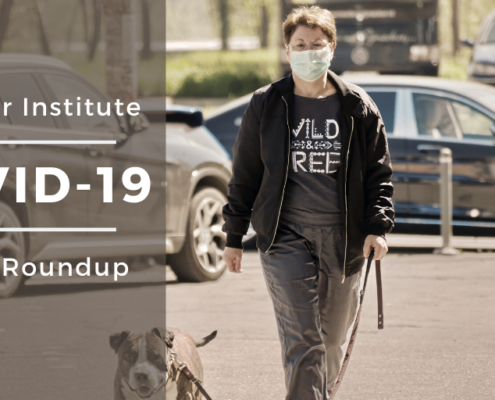Mapping COVID-19 in Massachusetts Cities & Towns
/0 Comments/in Blog, Blog: Better Government, Blog: Transparency, COVID Transparency, News, rCOVID /by Michael WalkerKudos to the Baker Administration for providing transparency in a critical matter of public safety. As Pioneer Institute’s Senior Fellow in Healthcare, Barbara Anthony, urged in The Boston Globe, the Massachusetts Department of Public Health upped its game and started posting the count and rate (per 100,000) of confirmed COVID-19 Cases in Massachusetts by City/Town. They will update the numbers each Wednesday. https://www.mass.gov/info-details/covid-19-cases-quarantine-and-monitoring
Taking this data, Pioneer created different ways to view the data:
-
- Scatter charts – Showing cases by population, with and without Boston (which is the outlier).
- Rankings – Largest to smallest number of cases and rate (cases per 100K population)
- Heat Maps – Of the infection rate, by county and municipality
- Table – By municipality & county, of the total number of cases, rate of infection, and the population (for reference)
- Testing – Graphs, a table and map showing number of people tested, testing rate per 100K population, and percent of positive tests.
Note: For populations <50,000, <5 cases are reported as such or suppressed for confidentiality purposes. In our graphs and tables, for those small towns with some reported cases, we assigned them 3 cases so the maps would draw correctly.
We plan to update the maps during the crisis after DPH releases weekly data.
Get Our COVID-19 News, Tips & Resources!

The past seven weeks of Massachusetts unemployment claims total 25.8 percent of the civilian workforce.

National Study Finds Most States Lack Healthcare Price Transparency Laws

Explosion in ESL enrollment creates new opportunities, challenges

COVID-19 will likely lead to a recession. Can Massachusetts municipal budgets handle one?

Conquering COVID-19: When and From Where Will Vaccines and Therapies Emerge?

COVID-19 Roundup from Pioneer: Human testing of a vaccine; NYT best-selling author John Barry on COVID-19 & warmer weather; Just who’s getting stimulus $?; Latest unemployment #s; What will reopening look like?; Tipping point for Telehealth & more!

New York Times #1 best-selling author John M. Barry on the 1918 Influenza Pandemic & lessons for COVID-19

The past six weeks of Massachusetts unemployment claims total 24.0 percent of civilian workforce

Re-opening for business: What should employers and commercial real estate managers do to prepare?

Report Finds “Reopening Day” in the Commonwealth Will Likely Include Phasing in Businesses and Contact Tracing

To Read or Not to Read Shakespeare? 12 Great Ways to Get to Know The Bard During COVID-19

States across the country have enacted eviction moratoriums. What does this mean for the housing market in the long-term?

A Tipping Point for Telehealth – Bringing Healthcare into Your Home

COVID-19 Roundup from Pioneer: 90-day prescription refills?; Who has the power to re-open the economy?; Grading the Bay State in Online Learning; The T & COVID prevention; & more!

Ashley Berner of Johns Hopkins on Academic Quality, Educational Pluralism, & the Providence Public Schools

New jobless claims data shows that Massachusetts unemployment has grown from 2.8% to at least 20.4% in five weeks

Study Highlights Transit Agency Best Practices in Response to COVID-19




